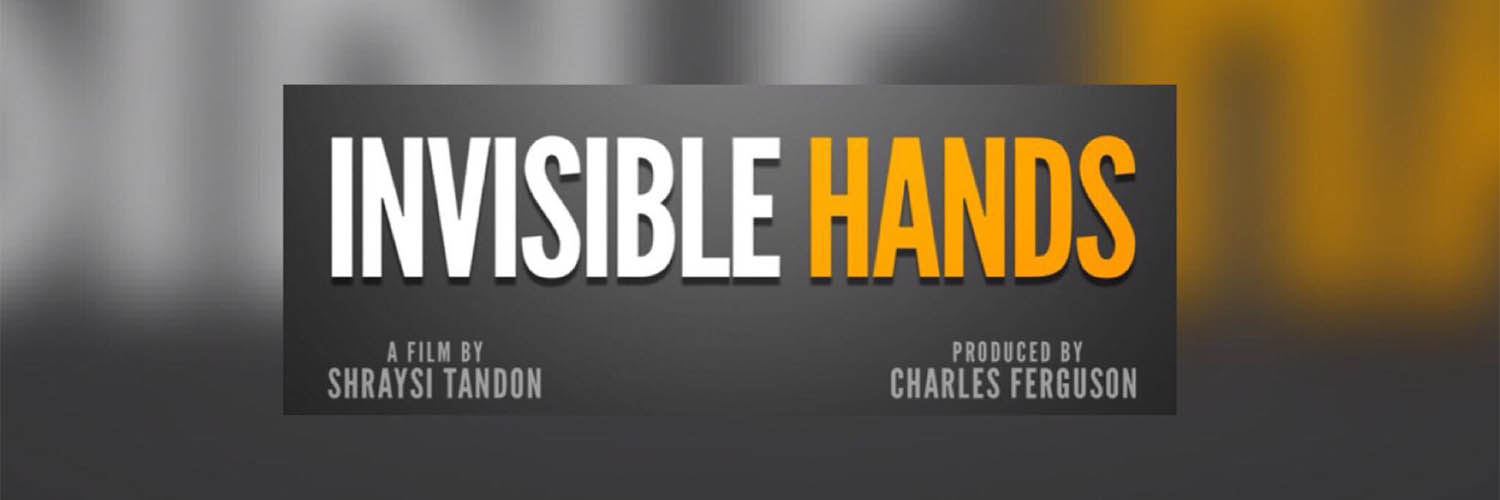Invisible Hands


“Invisible Hands” lays out the corruption in all countries – including the United States of America – regarding child labor. It’s a hard reality to accept and as the documentary opens on an intense raid to save a group of children, you soon realize what’s at stake.
The number one rule to any film, especially documentaries, is to be interesting and this exceeds that rule. Not only is it interesting, it is insightful. And it is scary as well as disturbing. This documentary gives statistics I wasn’t even aware of. I knew child labor was a huge deal in third-world countries, but the fact the USA – a country that has laws preventing it – is also a part of the problem makes me really disgusted. All major companies found within the U.S. even decline interviews about the subject at hand. It raises major questions if they know they’re outsourcing to others in different countries that partake in child labor.
This film shows the children doing metal work, field work, and factory work. Often times the children are malnutritioned and trafficked – that’s right, kidnapped. Their “bosses” make a deal with the traffickers that the children will work under them for a certain amount of time before they get paid. An example they use: 10 years. Farmers and traffickers won’t strike when the heat is on them. They know what they are doing. How they think it’s okay to do these things, I’ll never know.
There are a lot of interesting situations the filmmakers find themselves in. They get some undercover footage that’s a little hard to watch as it gets intense and there’s unspoken tension between the cameraman himself and those that surround him. The filmmakers don’t sit by and not do anything though. They attempt to help those who are being trafficked and from the footage alone, it’s risky. And it pays off.
What I really like about this documentary is that it doesn’t focus on only one country. It focuses on multiple ones that we thought got rid of child labor, such as China. The way China gets around it isn’t all that surprising, but it’s all the more frustrating. They covered up the “child labor” part by offering an “internship” to high school students where they live and work at a factory for the summer time. What do the filmmakers do? They go undercover, again, and we see the working conditions. Although it’s not nearly as bad as other third world countries, it does reveal what little pay they get for how much they work (hint: it’s more than the average american in one week). That’s just one country out of the others they cover and actually travel to.
There’s so much more to the documentary that is eye opening. I really think people should watch this just for the tension alone. The situations that have risks, the conditions the filmmakers find the children in, and the interviews that are extremely informative from those who have had experience who have worked with organizations trying to stop it. Watch it. Learn from it. Get motivated to do anything you can to help stop it and spread awareness.




